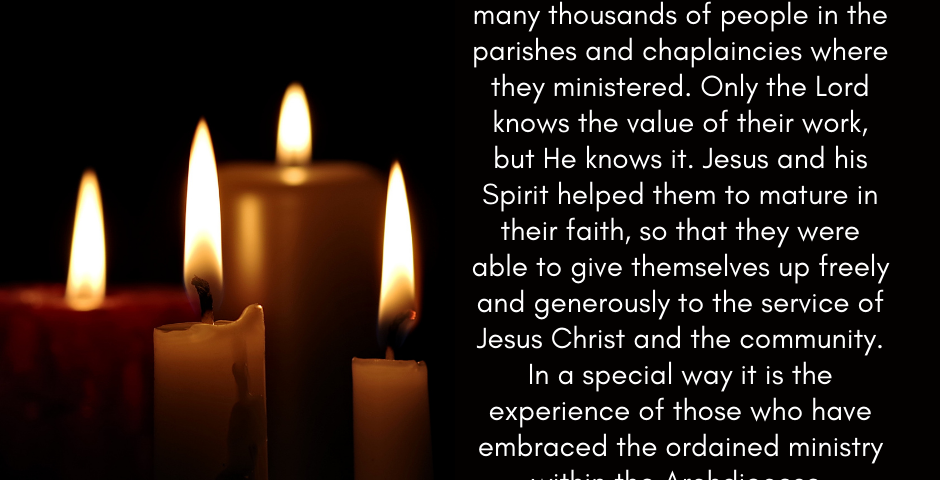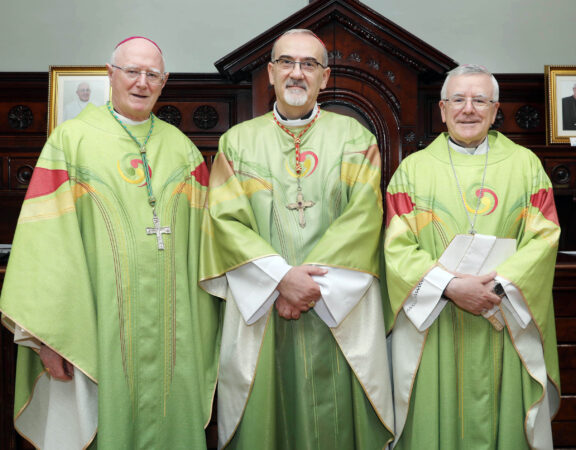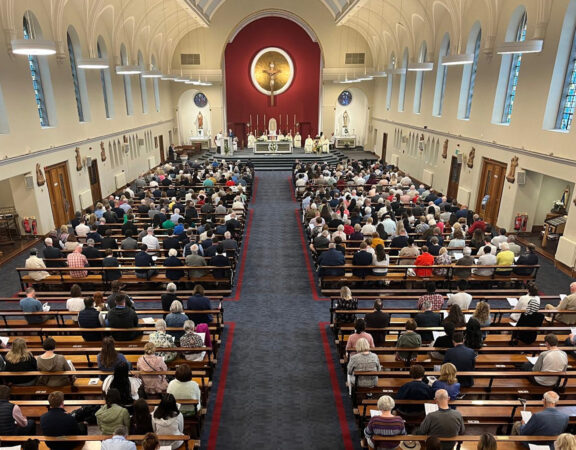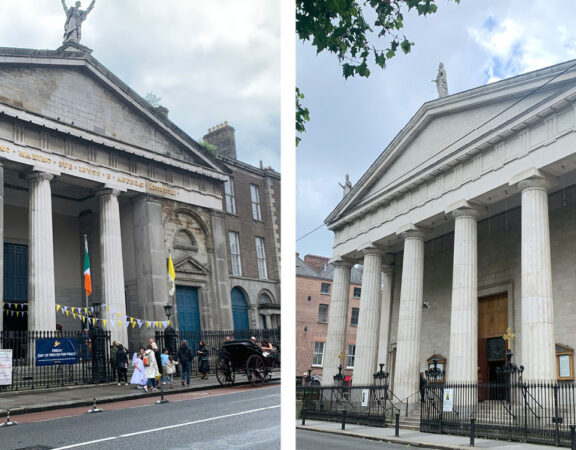Homily of Archbishop Dermot Farrell at the Annual Mass for the Deceased Priests
St Mary’s Pro-Cathedral,
13th November 2021.
Every year we gather during the month of November to pray for our brother priests and bishops who have died, and especially those who have died during the past year. For those who died in recent months the pain and grief is still raw. We pray for those “who have died in the hope of the resurrection” because we believe in the communion of saints, they are now with God and our communion with them. We pray that they may rest peacefully in God’s love. The Church, of course, prays for the dead in a special way during the celebration of every Mass.
Praying for the dead is, above all, a sign of our gratitude for the witness that they have left us and the good that they have done. It is an act of thanksgiving to the Lord for all that He has given them, and for their active and pro-active love and their friendship.
As we give thanks for the lives of the priests and bishops who faithfully served the Archdiocese during their lifetime, let me turn again to the parable of the Widow’s Mite which we heard last Sunday. The destitute widow approaching the temple treasury holding her last two small coins is one of the most touching images in Scripture. I would like to draw some inspiration from it again this morning.
First, it is Jesus who sees: not the disciples, and not the woman. He is the judge of the ‘value’ of her contribution. He is also the ultimate judge of ours. The priests we pray for today did not exercise their ministry in order to be seen. They did not live on activity alone and on its results, or for short-term payment. Their faith is a story of fidelity that was slowly built up over a lifetime of ministry, not the mere passing enthusiasm of the moment. Moved by love, their lives were gifts which they shared with many thousands of people in the parishes and chaplaincies where they ministered. Only the Lord knows the value of their work, but He knows it. Jesus and his Spirit helped them to mature in their faith so that they were able to give themselves up freely and generously to the service of Jesus Christ and the community. In a special way, it is the experience of those who have embraced the ordained ministry within the Archdiocese.
Further, Jesus judges not by any external criterion, but according to the heart-space of the giver; the ambient culture “counts”—as do the disciples; Jesus “measures” the heart, as it were. Jesus—as Lord—can see what we cannot both good and bad. Our brothers, family members, and friends whom we pray for this morning already know how generous God is in this world, so they wait in hope for the eternal life promised to the good and faithful servant. “Search my mind and heart, o righteous God” (Ps 7:10). We firmly believe that the Searcher of our hearts looks with a gaze of kindness at our inner life. The Holy One believes in our inner goodness and is aware of our desire to change what we can regarding our weaknesses and shortcomings.
This brings us to another dimension: the economy Jesus proposes might be termed an economy of the Kingdom, another way of looking at what matters. In God’s eyes, the two cents are worth more than both the large donations of the rich, and all the “holocausts and sacrifices”—because what the woman gives is “all she had to live on”—literally, her whole life. She is the one who embodies what Jesus has told the scribe is the first commandment: to love the Lord—who is the one God—”with all one’s heart, with all one’s soul, with all one’s mind and with all one’s strength” (Mark 12:28). Those whom we remember in prayer and in our Eucharist this morning, between representing 921 years of priestly service, did likewise.
This, of course, is what Jesus himself embodies … ultimately on the cross… with all its brutality, degradation, faced with the silence of God. Indeed, Jesus himself spoke about “persecutions” to be endured in this life. He promises eternal life for the afterlife and also for our present life a great satisfaction. But he does not guarantee success, happiness, and fanfare at all times. What he does promise are the cross and persecutions. A cross that was also included in his program and which several times He said His disciples are to carry. What is of worth has its cost. Easter is reached through the cross of Good Friday. Love often presupposes sacrifice. But it is worth it.
In the end, Jesus and us all are the poor widow. What have we to offer? In the end, our greatest gift—not only to God but to the world as well, is our poverty, our simplicity, our openness, our presence. When we think about it, this also is what our crucified and risen Lord has to offer: his poverty, his simplicity, his openness, his presence. But his poverty and ours can—in the power of the resurrection—be as the few loaves and the couple of fish which God transforms to feed the multitude in the desert.
In a few moments, we will receive the Eucharist and enter into the mystery of Christ’s death and resurrection. As we enter into the mystery, we ask for the grace to live with the generous spirit of this widow, the extraordinary example of faith and discipleship and love.
END








